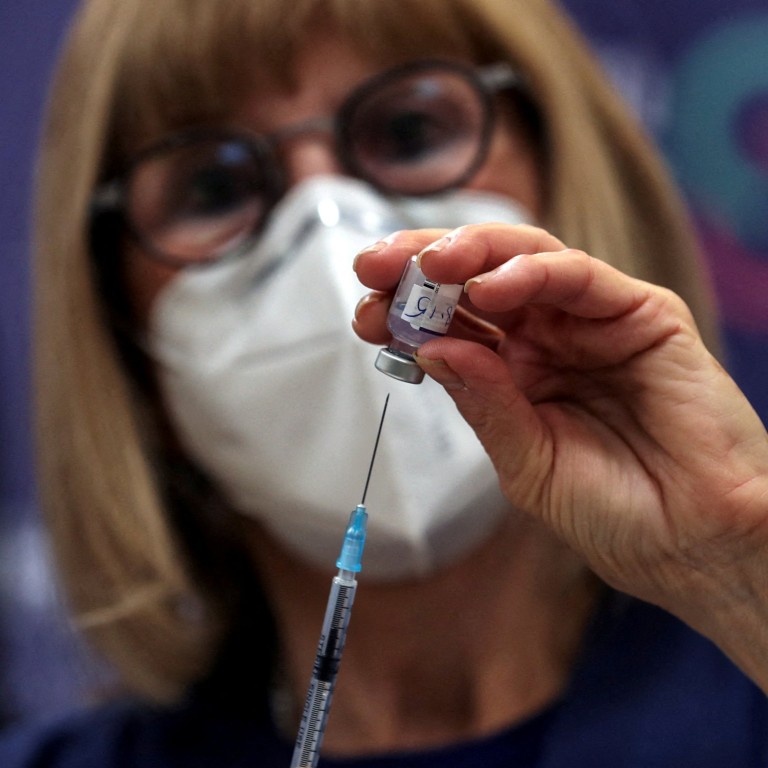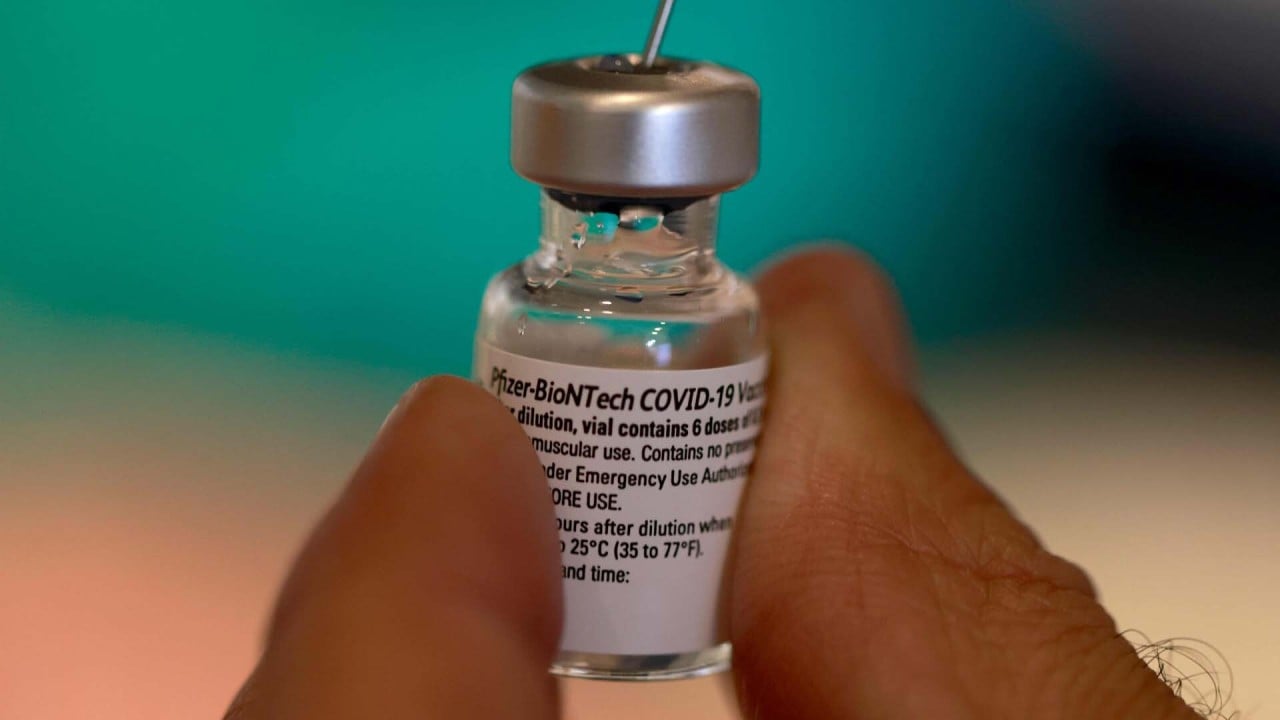
Fourth shot of coronavirus vaccine less effective on Omicron, Israel study shows
- A second booster jab brings antibodies to even higher levels but is not enough to prevent infection, according to the first-of-its-kind trial
- The Omicron variant’s spike protein is different in key places, making it harder for the immune system to recognise the virus.
Israel’s Sheba Medical Centre has given second booster shots in a trial among its staff and is studying the effect of the Pfizer booster in 154 people after two weeks and the Moderna booster in 120 people after one week, said Gili Regev-Yochay, director of the Infectious Diseases Unit.
These were compared to a control group that did not receive the fourth shot. Those in the Moderna group had previously received three shots of Pfizer’s vaccine, the hospital said.
The vaccines led to an increase in the number of antibodies “even a little bit higher than what we had after the third dose”, Regev-Yochay said.
“Yet, this is probably not enough for the Omicron,” she told reporters.
“We know by now that the level of antibodies needed to protect and not to got infected from Omicron is probably too high for the vaccine, even if it’s a good vaccine.”
The findings, which the hospital said were the first of its kind in the world, were preliminary and not yet published.
Israel was the fastest country to roll out initial vaccinations against Covid-19 a year ago and last month started offering a fourth shot, or a second booster, to the most vulnerable and high-risk groups.
Expect more worrisome Covid-19 variants after Omicron: scientists
However experts say the Omicron variant’s spike protein is different in key places, making it harder for the immune system to recognise the virus.
Despite the limited success of a fourth jab, Israel’s decision to give the dose to immunocompromised people might have a small advantage, according to Regev-Yochay. However, she did not recommended extending this offer to the entire population.
“If someone has a personal risk, then it is better to vaccinate now, if not, then maybe it is better to wait.”
Additional reporting by dpa


